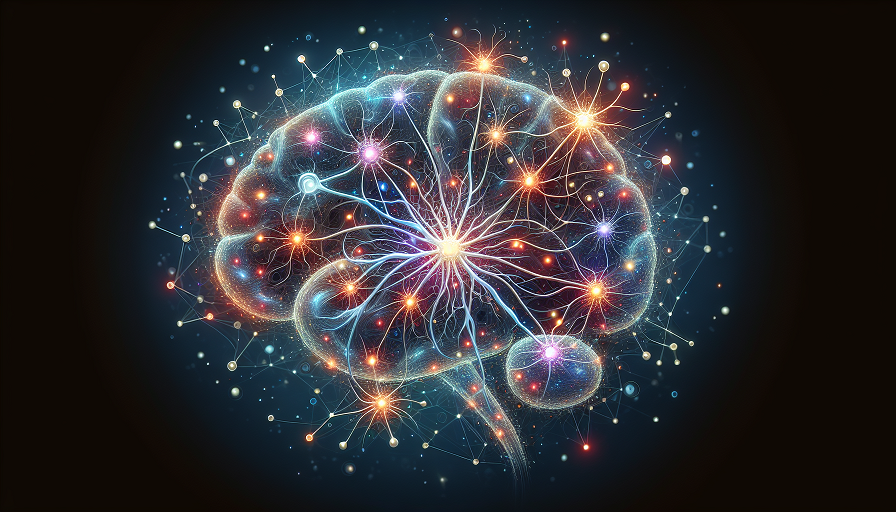
Failure: a word most of us dread but one that holds immense potential for growth. While it may sting in the moment, failure is one of the most effective teachers our brains can have. By learning from setbacks, we not only enhance our problem-solving abilities but also build a more resilient brain.
Contents
The Neuroscience of Failure: Why Your Brain Needs It
Failure triggers a cascade of neural activity that, when managed effectively, can lead to profound learning and adaptation. Understanding the brain’s response to failure reveals why it’s such a powerful tool for growth.
Activation of the Error-Monitoring System
When you make a mistake, the brain’s anterior cingulate cortex (ACC) lights up like a warning signal. This region helps you recognize errors and adjust your behavior, setting the stage for improved problem-solving.
Neuroplasticity in Action
Failure activates neuroplasticity—the brain’s ability to reorganize and form new neural connections. Each time you learn from a mistake, you’re literally rewiring your brain to be more adaptable and efficient.
Dopamine and Reward Systems
When you correct a mistake or overcome a failure, your brain releases dopamine, the feel-good neurotransmitter. This not only reinforces learning but also motivates you to tackle future challenges.
Example
Think about learning to ride a bike. Every fall teaches your brain to adjust balance, pedal coordination, and spatial awareness. Without those initial tumbles, you’d never master the skill.
Failure as a Catalyst for Problem-Solving Skills
Failure doesn’t just teach you what went wrong—it helps you develop critical problem-solving skills by forcing you to approach challenges from new angles.
Encouraging Creative Thinking
Failure pushes you out of your comfort zone, encouraging creative approaches to problem-solving. The brain’s prefrontal cortex plays a key role here, enabling flexible thinking and innovative solutions.
Improving Analytical Skills
Reflecting on failure helps refine analytical skills by encouraging you to dissect the problem, identify what went wrong, and develop a more effective strategy.
Building Perseverance
Solving problems often requires persistence, and failure teaches you to stay the course. Each setback strengthens your mental grit, making you more resilient in the face of future obstacles.
Real-World Application
Consider an entrepreneur refining their business model after a failed product launch. Each iteration improves their strategy, increasing the likelihood of success.
How Failure Builds Brain Resilience
Resilience isn’t just a personality trait—it’s a skill your brain develops through experience, particularly failure. Here’s how setbacks help your brain bounce back stronger.
Strengthening the Stress Response
Failure activates the hypothalamic-pituitary-adrenal (HPA) axis, which manages the stress response. Over time, repeated exposure to manageable stress builds emotional resilience, helping you stay calm under pressure.
Enhancing Emotional Regulation
Failure teaches the brain’s amygdala and prefrontal cortex to work together more effectively, improving your ability to regulate emotions and maintain focus.
Encouraging a Growth Mindset
Embracing failure fosters a growth mindset—the belief that abilities can be developed through effort. This mindset is linked to increased brain activity in regions associated with learning and adaptation.
Anecdote
Think of a student who struggles with math but gradually improves through practice and corrective feedback. Each small victory builds their confidence and resilience, making them more capable of tackling difficult problems.
Practical Strategies for Learning from Failure
While failure is a powerful teacher, the way you respond to it determines how much you learn. Here are strategies to turn setbacks into stepping stones.
Reflect, Don’t Ruminate
Reflection involves analyzing what went wrong and how to improve, while rumination focuses on negative emotions. The former enhances learning; the latter hinders it.
Adopt a Problem-Solving Framework
Use frameworks like root cause analysis or SWOT (Strengths, Weaknesses, Opportunities, Threats) to systematically address the factors contributing to failure.
Seek Feedback
Constructive feedback provides insights you might have missed. Whether from a mentor, colleague, or friend, an outside perspective can clarify the path forward.
Celebrate Progress
Recognize small wins along the way. Each step toward improvement reinforces positive behavior and motivates continued effort.
Example
A writer revising a rejected manuscript might analyze feedback, restructure the narrative, and celebrate completing each chapter. The final product is stronger for the effort.
Scientific Studies on Failure and Brain Growth
Research confirms that failure plays a critical role in cognitive development and resilience. Here’s what science has to say.
The Role of Error-Related Brain Activity
Studies using EEG have shown that the brain generates an error-related negativity (ERN) signal when mistakes occur. This signal prompts learning and behavioral adjustments.
Neuroplasticity and Adaptive Learning
Research in Nature Neuroscience highlights how failure-driven learning strengthens neural circuits, enhancing problem-solving and decision-making skills.
Resilience Research
Studies on resilience, such as those published in The Journal of Positive Psychology, show that individuals who embrace failure are more likely to succeed in long-term goals.
Case Study
A study on medical students found that those who reflected on failed test questions performed significantly better on future exams, highlighting the power of failure-driven learning.
Who Can Benefit from Learning Through Failure?
The ability to learn from failure is universally beneficial, but certain groups may find it particularly transformative.
Students
Students preparing for exams or learning new skills can use failure as a stepping stone to mastery, building confidence and competence with each attempt.
Professionals
Professionals in high-stakes roles, such as healthcare workers or engineers, can refine their decision-making and problem-solving skills through failure analysis.
Entrepreneurs
Entrepreneurs navigating uncertain markets can use failure to test assumptions, refine strategies, and build resilience for future challenges.
Personal Growth Enthusiasts
Anyone seeking self-improvement can benefit from viewing failure as an opportunity for growth, fostering a more adaptive and resilient mindset.

